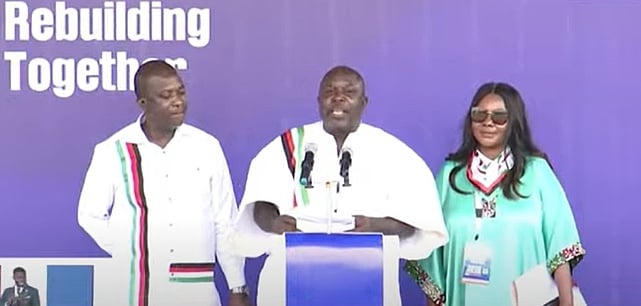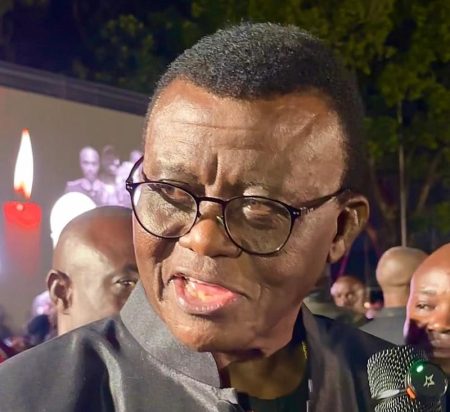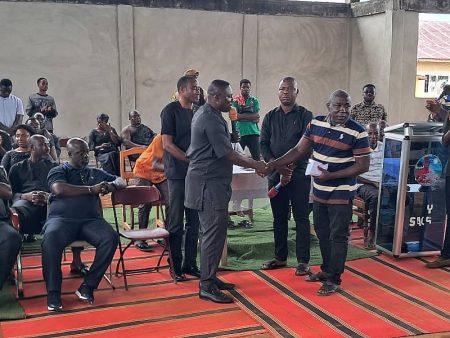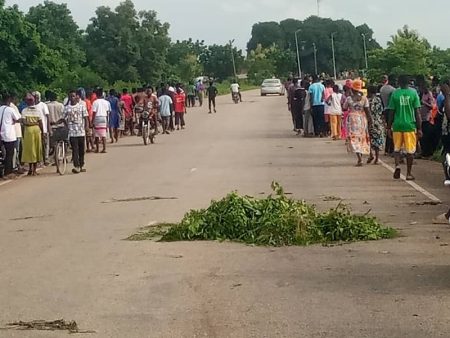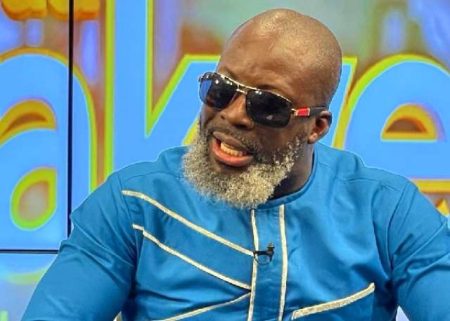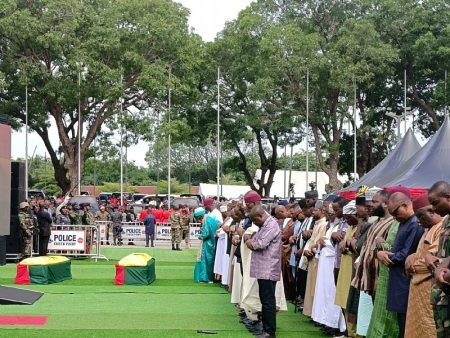The National Democratic Congress (NDC), Ghana’s ruling party, has expressed its approval of the New Patriotic Party’s (NPP) ongoing internal restructuring efforts. The NDC views this initiative as a crucial and timely political reset, aligning with the broader national objective of promoting unity and driving development. Ludwig Hlodze, the NDC’s Director of Logistics and Protocol, commended the NPP for taking the initiative to reassess its strategies and direction, particularly after its defeat in the 2024 general elections. This introspection, according to Hlodze, signifies a positive shift towards responsible opposition and constructive engagement in the political landscape. This approach resonates strongly with President John Dramani Mahama’s vision of national rebuilding and reconciliation.
Speaking at the NPP’s National Delegates Conference held at the University of Ghana Sports Stadium, Hlodze underscored the critical need for renewal across Ghana’s political spectrum, given the prevailing political and economic climate. He emphasized the importance of a collective reset, encompassing ideas, policies, and programmes, by all political parties. Hlodze framed the NPP’s internal restructuring as a positive contribution to this national reset, envisioning the party’s role as one of providing constructive criticism and support to President Mahama’s nation-building agenda. He painted a picture of collaborative governance where the opposition actively contributes to the creation of a better Ghana, rather than engaging in purely adversarial politics.
The NPP’s conference, themed “Rebuilding Together with Our Values,” served as a platform for the party to introspect on its past performance in government, acknowledge shortcomings, and reconfigure its internal structures in preparation for the 2028 elections. This theme itself suggests a recognition of the need for internal change and a renewed commitment to the party’s core principles. The conference provided an opportunity for the NPP to address internal divisions, strategize for future elections, and redefine its message to resonate with the electorate. The party’s willingness to engage in this self-assessment is a sign of its commitment to democratic principles and a desire to remain a relevant force in Ghanaian politics.
Hlodze’s presence and remarks at the NPP conference signify a rare instance of bipartisan acknowledgment and cooperation. This gesture highlights the importance of healthy political competition—one that prioritizes national interests—and collaborative efforts to address the nation’s challenges. It suggests a departure from the often-polarized political discourse that has characterized Ghanaian politics in the past. This show of unity comes at a time when restoring public trust in Ghana’s democracy is of paramount importance. The NDC’s gesture signifies a potential turning point, suggesting a possible shift towards a more constructive and less confrontational political environment.
The NDC’s public endorsement of the NPP’s internal reforms reflects a mature and pragmatic approach to political engagement. It suggests a recognition that a strong and viable opposition is essential for a healthy democracy. By encouraging the NPP’s self-improvement efforts, the NDC indirectly strengthens the democratic process. This gesture also hints at a potential shift in the tone of political discourse in Ghana, moving away from confrontation and towards collaboration. Such a shift could pave the way for more productive dialogue and policy-making, ultimately benefiting the nation as a whole.
The NDC’s actions convey a powerful message about the importance of unity and collaboration in addressing national challenges. This approach can foster an environment conducive to constructive policy debates and bipartisan cooperation on critical issues facing the country. By focusing on shared goals and a common vision for Ghana’s future, the two major parties can set an example for the entire political landscape, inspiring greater cooperation and a more productive approach to governance. This move towards a more collaborative political environment can also contribute to rebuilding public trust in the political process and fostering a stronger sense of national unity. It represents a hopeful sign for the future of Ghanaian democracy.





